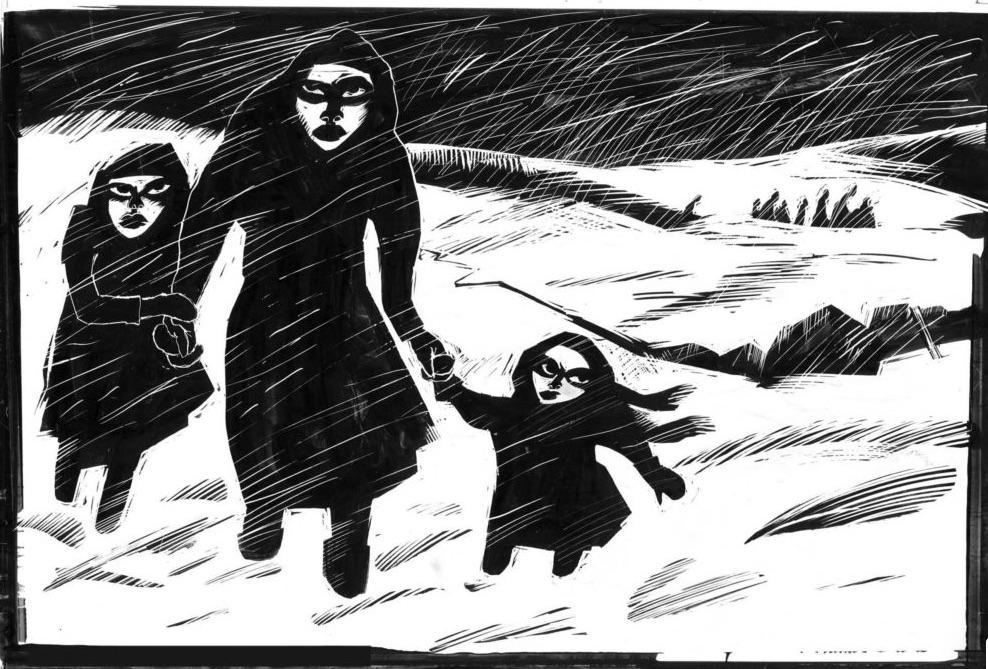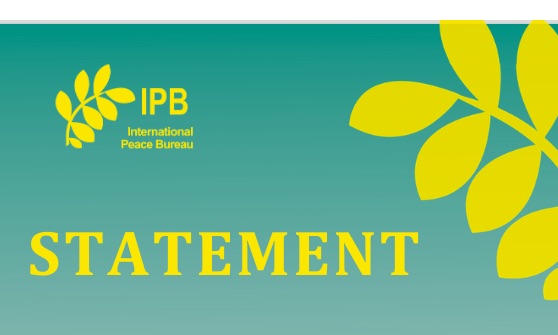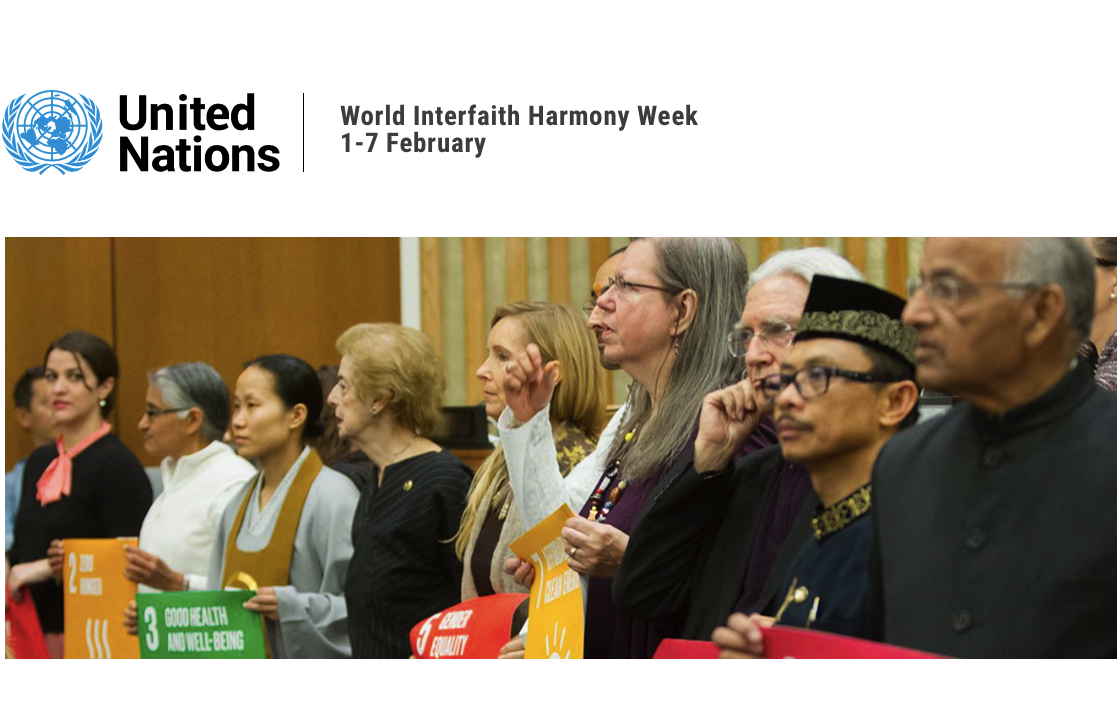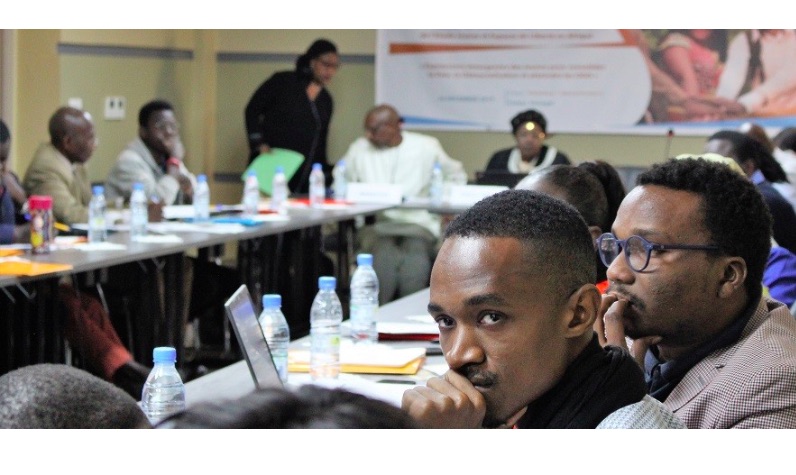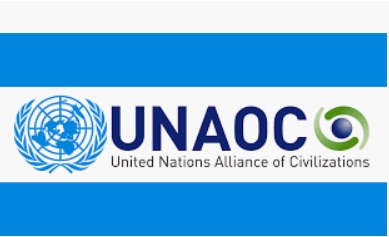TOLERANCE & SOLIDARITY .
An article by Ken Butigan in Common Dreams (licensed under a Creative Commons Attribution-Share Alike 3.0 License)
The COVID-19 pandemic has ground the world to a halt. While Hubei province in China has begun to recover, it has done so by locking down sixty-million people and severely disrupting the patterns of life and work there. The rest of the world is generally behind the curve in its response, with the number of cases skyrocketing and a few countries courageously taking the same drastic measures that the Chinese did toward containment and mitigation. The United States has declared a national emergency, but the pivotal strategy of testing is severely lagging. Quite likely, the next weeks will see a dramatic increase in cases and deaths.. .

How, then, does this crisis sharpen our choice for a culture of active and life-giving nonviolence? Doesn’t it, instead, point to a future of epidemics, social disruption, economic chaos, and an increase in the politics of fear?
There is no question that the current catastrophe could worsen an already grim trajectory of climate change, poverty, racial injustice and militarism. It could feed the flames of authoritarianism and regimes of surveillance, even as it could drive long-term economic dislocation, with harsh impacts in the lives of people everywhere.
At the same time, however, this crisis is so global, so encompassing, so pervasively universal—touching virtually every person on the planet—that it not only begs for an immediate and comprehensive response, it cracks open the possibility for a long-term cultural and planetary shift toward a more just, peaceful and sustainable order.
It is the magnitude of this cataclysmic predicament that directly confronts us, willingly or not, with the choice Dr. Martin Luther King, Jr. specified for humanity half a century ago—nonviolence or nonexistence—and prompts us urgently to discover a way forward drawing on nonviolent methods toward a more nonviolent world.
While combating this pandemic with xenophobia and “us versus them” nationalism has been the reaction of some, the reality is that, if we are to survive this crisis effectively, it will require comprehensively nonviolent cooperation and approaches. We are already seeing these in action. When the people of Wuhan and Italy—and now Spain—join in the radical social-distancing of staying home for weeks, they are not only protecting themselves, they are engaging in a powerful, nonviolent action of social responsibility and solidarity. When societies take rapid, extraordinary steps to mitigate the shock of job loss or the expense of testing, they are pursuing nonviolent strategies—nonviolent because they resist the violence of exclusion or indifference while fostering healing and unity. Even as we find ourselves in the midst of this disorienting and surreal disaster, we are often responding instinctively with empathy and compassion. No doubt, this nonviolent energy, extended to the entire world, will be increasingly needed as the scale of this catastrophe becomes clearer over the next weeks and months.
Nonviolence is organized love. A constructive force, an active method, and a powerful way of life, active nonviolence is the power of creative love unleashed to relieve suffering, to struggle for justice, and to nurture a world where everyone counts. Now more than ever this energy is urgently required to respond to the world of hurt that the COVID-19 tsunami is leaving in its wake—the growing number of people struck down with the virus; the keen grief of those who have suddenly lost loved ones; the overwhelmed health-care systems and providers; but also those caught in its financial wreckage, including minimum wage workers who suddenly have no income; small business owners with raser-thin margins forced to shut down; and, most palpable of all, millions at the margins who have no safety net, no resources, no health care, no recourse.
The present world of pain not only presents an emergency requiring an immediate response, it throws in sharp relief the need for dramatic social change. We have not built a world that is up to effectively dealing with this challenge. This moment of what we might call “pan-suffering”—agony reaching deeply into the lives and societies across the globe—is revealing the need for societies and systems capable of handling such transnational emergencies while providing for those most impacted by them.
From “War Footing” to “Nonviolent Mobilization”
While the metaphor of “going to war against the virus” crops up in many media reports—“Every college and university is on a war footing about this and are trying to assemble as much information as possible” (LA Times); “New York adopts war footing to ready hospitals for virus surge” (Bloomberg News); “Trump’s national emergency declaration, corporate partnership put U.S. on war footing vs. coronavirus” (Boston Herald)—the strategies in place, and the ones that will succeed, are anything but those of war-fighting. When the media reach for a term like “war footing,” they are falling lazily into a traditional groove for describing a concerted, society-wide strategy for mobilizing people and resources to solve a monumental problem confronting the nation or the world.
If, in fact, defeating COVID-19 will most effectively happen through nonviolent strategies, it is best to reach for a metaphor that both implies this and minimizes the possibility of violent counter-measures (as in the “war in Iraq” or even policies that have taken on this signifier, like “the war on drugs” or “the war on poverty”). Rather than the metaphor of war, it is better to take on a metaphor from the world of nonviolence, for example, “nonviolent mobilization”: inviting people across our societies to tap their power for love, mercy, peace and nonviolent change in a comprehensive and collaborative way. Truly ending this epidemic will require a common vision of, and policies supporting and fostering, unity, cooperation and healing.
The more we take steps now in the spirit of nonviolent transformation, healing and connectedness, the more we will glean lessons for going forward as a society and a planet.
These lessons—for example, that health-care for all lessens the spread of epidemics; that an economic safety-net for all buffers the shocks of such catastrophes; that our limited resources should be poured into meeting the human needs of all instead of military systems that buttress “us versus them” geo-politics—will point us toward and serve as a foundation of a nonviolent shift that our nation and our world desperately needs.
Pace e Bene
While many of us may have long been thinking along these lines, it is in these moments of shock and peril that we can find the gumption to take the concrete steps for making this shift a reality.
In addition to teaching at DePaul University, I work with Pace e Bene Nonviolence Service, a thirty-year-old organization spreading the power of nonviolence. Pace e Bene (“Peace and Good,” a greeting used by St. Francis of Assisi) has long been working for what Joanna Macy calls “the great turning.” Since 2014, we have been collaborating with a growing community of sisters and brothers in the US and around the world to take steps toward building and nurturing a culture of active nonviolence free from war, poverty, racism and environmental destruction.
(continued in right column)
How can we work together to overcome this medical and economic crisis?
(continued from left column).
Each year since then Campaign Nonviolence has been growing—by organizing Nonviolent Cities, by facilitating trainings and workshops, by publishing books on nonviolence, by encouraging the Catholic Church to spread nonviolence (in our work with Pax Christi International’s Catholic Nonviolence Initiative), and by mobilizing nonviolent actions for a week each September, anchored by the International Day of Peace. (This year, the Campaign Action Week will take place September 19-27.)
In all of this, we have been preparing for a turning point. Maybe it is here.
This all depends on our choice.
On the Threshold?
We can’t predict what the long-term impacts of the COVID-19 pandemic will be. Perhaps, after it passes, we will resume the life we have always known. There is some evidence that this is what’s happening in China, where the lessening of the coronavirus spread has seen a return to pre-COVID-19 fossil fuel consumption levels.
At the same time, there is the potential for a long-term shift. In spite of rampant nationalistic tendencies, this disease underscores the inextricable interconnectedness of planet earth. We are all literally in this together, and that togetherness does not stop at national borders. The healing the earth’s population in the face of this global infection ultimately will hinge on the care for all, not for some. Just as humanity began to reset its self-understanding after Apollo 8’s “earthrise” photo was beamed home in 1968—a startling image that helped us “get” that we are one borderless planet, suspended in the darkness, together—so COVID-19 shocks us into an even deeper awareness: whatever threatens one threatens all. Our survival depends on one another. Or, to put it positively, we are being beckoned to, once and for all, outgrow our limiting conceptions of self and nation. Our full flourishing hinges on transcending the confining cultural and social operating systems that exclude, demonize, and reject.
COVID-19 has deepened our understanding of the Apollo 8 image: we see a planet wounded and needy, one community of communities in need of healing, compassion, and transformation, a sacred reality calling us to the nonviolent turn. Violence will not heal this brokenness and pain. Only nonviolence—purified of violence at its very roots, as Sr, Nancy Shreck, OSF has put it—can relieve this suffering in its comprehensiveness.
Whatever the outcome, the experience of this current pandemic is likely a rehearsal for the summoning of global resolve to, once and for all, tackle the series of grave “epidemics” that are mutating and growing all around us: the epidemic of economic inequality; the epidemic of racism, sexism and homophobia; the epidemic of nationalism and xenophobia; the epidemic of militarist systems and solutions; and the existential epidemic of planetary collapse. Our current struggle offers us the gift of both seeing the “big picture” in a new way and the invitation to shift our way of life and being in foundational ways in light of that “big picture.”
It is a vivid and compelling invitation to see anew the indivisible reality of life and, consequently, to join and contribute to the global movement for this cultural and planetary shift.
Steps Forward
The immediate question is: How can we make this choice for a nonviolent shift in the midst of the current chaos?
First, within our own lives. As one nation after another goes into lockdown in order to interrupt the transmission of COVID-19, more and more of us will be staying put at home. This is an opportunity to prepare ourselves for taking part in this shift. How? Instead of regarding it as a kind of involuntary imprisonment, perhaps we can envision it as a space for transformation. In the fourth century, the first monks headed to the deserts of Egypt and Palestine to, as Thomas Merton imagined it, jump ship from the Roman Empire, which had begun to co-opt the Church. Their life of contemplation and self-confinement was a process of being freed from empire, physically but also spiritually. They sparked a revolution of consciousness that has rippled down to our own day.
Similarly, let us use these coming days and weeks to take steps toward a liberation from the domination system and toward a culture of peace and nonviolence. With intentionality, reflection, prayer and community offline and online, we can take steps to challenge scripts of fear and division and to experience healing and transformation in our lives, our relationships and in the global movement for a world where everyone counts.
In this time of anxiety, let us renew our relationship with our loved ones, even if we are in close quarters.
In this time of dislocation, let us nurture the bonds of connection and solidarity.
In this time of disruption, let us find ways to commit our lives to the healing and well-being of all.
In this time of instability, let us imagine what nonviolent practice we can take up and deepen.
A New Movement is Coming
The greatest social movement in human history is coming. Each of us is called to join it. It is a global movement, a movement of movements. It is learning from the history of movements that has been accelerating over the past century. It is rooted in the blood and tears of millions who have spent their lives throughout history clamoring for justice, working for peace, laboring for a world that works for everyone.
This movement will not appear by magic. It requires hard work and “acting our way into thinking.” It will be deeply nonviolent—saying No to injustice and Yes to the humanity of all, including the humanity of our opponents.
In a curious way, COVID-19 is a strange messenger. It is calling us resolutely to join this planetary movement that is emerging.
Let us join this all-embracing movement. We can fill our knapsack for the journey ahead by taking nonviolence trainings online, planning for action in September, imagining how your locality could become a nonviolent city—and entering the mystery of nonviolent healing and transformation. We can ready for humanity’s next step by finding—online, or off—a small group of 4 or 5 people to reflect, study and plan together, supporting one another as catalysts for transformation, as agents of nonviolent change, as advocates for a renewed and revitalized world.
Let us commit ourselves to the dramatic, systemic transformation needed now more than ever. The vision, principles and strategies of nonviolent movement-building will strengthen our ability and capacity as agents of nonviolent change for a renewed and revitalized world.
We do not know, yet, how the change which is needed will come about. In these days of darkness and decision, let us open ourselves to the new direction to which we are being called.
Let us choose the way of nonviolent love in this time of coronavirus.
Ken Butigan is director of Pace e Bene, a nonprofit organization fostering nonviolent change through education, community and action. He also teaches peace studies at DePaul University and Loyola University in Chicago.
